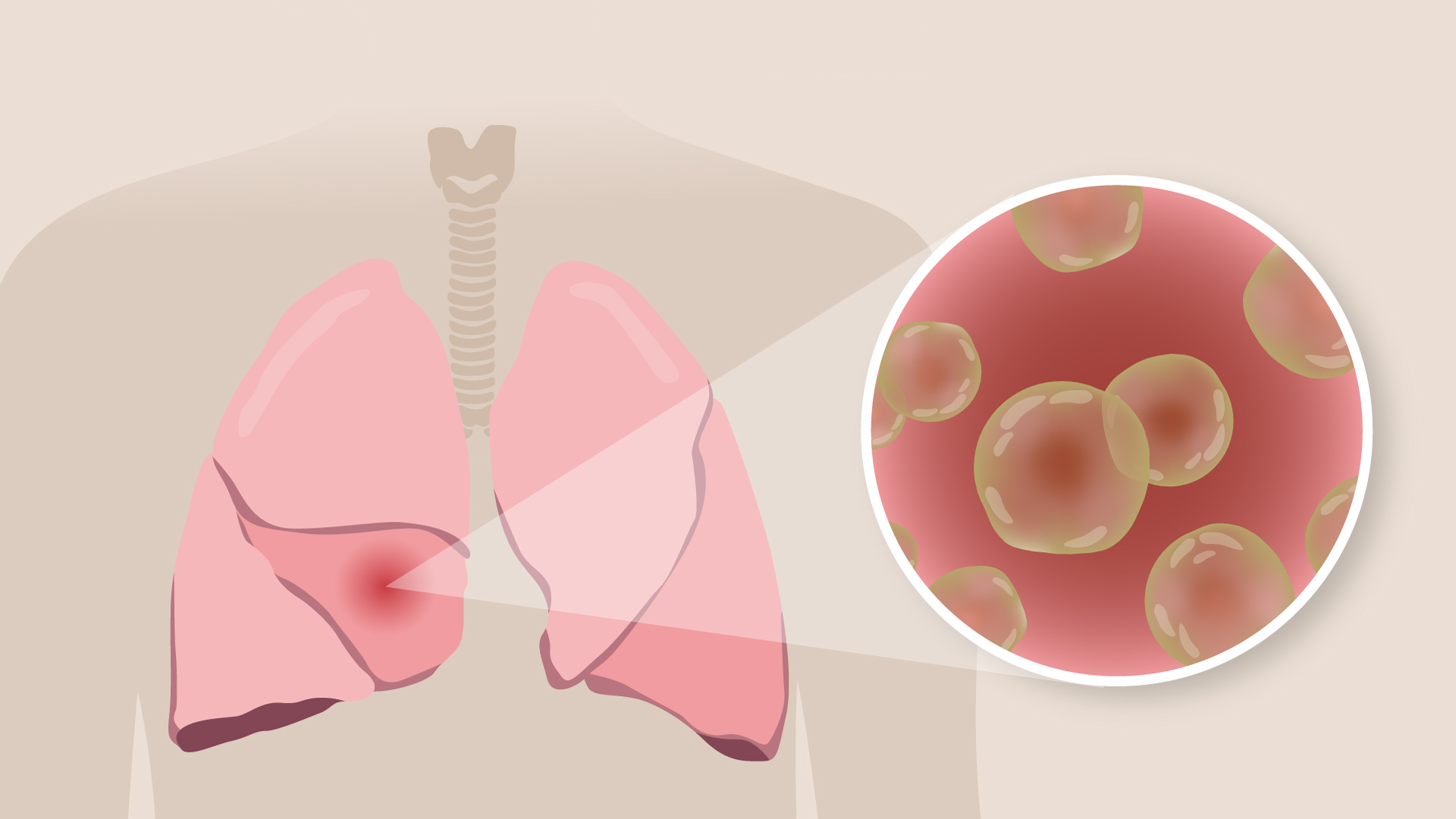Chronic lung infections
Most lung infections are acute (short term) conditions that either resolve on their own or are highly treatable with medications like antibiotics. They include illnesses like bronchitis and pneumonia that can be due to bacteria, fungi and viruses (such as flu).
Occasionally, lung infections can last a long time and cause a variety of debilitating symptoms. These are called chronic lung infections.
The cause of chronic lung infections can vary between adults and children and it’s important to treat them as soon as possible, as well as to work towards preventing them from returning.
What are chronic lung infections?

Lung infections are often caused by viruses, bacteria or fungi in the lungs leading to inflammation.
Acute lung infections occur when your lungs become inflamed, often due to factors like viruses, bacteria, or fungi. The infection can affect any part of your lungs and normally resolves on its own or with treatment (such as with antibiotics in the case of bacterial lung infections). Acute lung infections usually clear within a few days to weeks.
Chronic lung infections can last for months or even years. They are more difficult to treat than acute lung infections and require expert input. They can cause lasting damage to your lung tissues as they become repeatedly damaged by the infection over time. It is therefore very important to seek the advice of a specialist doctor to get a chronic lung infection treated.
Symptoms of chronic lung infections
The symptoms of chronic lung infections in adults and children are similar. They can include:
- a persistent, severe cough which may bring up sputum and, in severe cases, blood
- fever and sometimes night sweats
- a tight feeling across the chest
- a sharp stabbing pain in the chest when breathing deeply (pleurisy)
- shortness of breath and wheezing (a high-pitched whistling sound when breathing out)
- fatigue
Symptoms can vary and differ over time too.
Causes of chronic lung infections
Like acute lung infections, chronic lung infections can be caused by bacteria, viruses, mycobacteria or fungi entering the lungs. However, there are certain health conditions and risk factors that may increase the chance of it turning into a chronic lung infection. These include:
- a weakened immune system due to illness or medications
- asthma
- autoimmune diseases, where the immune system mistakenly attacks healthy tissues of the body
- bronchiectasis which is a chronic lung disease that causes the airways to become permanently widened and thickened, leading to a build-up of mucus. This can affect people of any age
- chronic obstructive pulmonary disease (COPD), which is a condition where the air sacs of the lungs become damaged. This condition is more common in adults and is often caused by smoking or exposure to air pollution
- cystic fibrosis, which is an inherited lung condition present at birth
- diabetes
- smoking
The chance of having a chronic lung infection can also vary depending on what has caused the infection. Some organisms are harder for your body to fight off than others. Pseudomonas (a bacteria), non-tuberculous mycobacteria and Aspergillus (a type of fungus), for example, can be more difficult for your body to get rid of, leading to an increased chance of having a chronic lung infection.
How are chronic lung infections diagnosed?
We offer numerous comprehensive diagnostic tests to confirm the presence and cause of a chronic lung infection in both adults and children.
Our consultants will take your history, perform a chest examination with a stethoscope, followed by investigations. This is used to ensure your current health problems are fully understood so that the best treatment can be provided.
If there are signs of a chronic lung infection, we may request a chest X-ray or a CT scan to create a more detailed picture of your lungs. Lung function tests may be performed to assess how well your lungs are working.
To determine the cause and type of the infection you have, a sputum sample will be collected and analysed, and in some cases a bronchoscopy and lavage is needed to obtain samples for microbial culture.
Once our specialist has determined an accurate diagnosis, they will create a personalised, effective treatment plan.
Chronic lung infection treatments
Treating a chronic lung infection will be based on the type of infection you have, as each type of infection requires a different approach. It may take some investigation before the right treatment is decided upon.
Your sputum may be cultured in the hospital, blood tests may be carried out, and CT scans may be used to look at the structure of your lungs. All of these tests will help us determine which treatment is right for you.
Most chronic lung infections can be effectively treated with antibiotics. In more serious cases, you may need stronger intravenous antibiotics. Antifungals may be recommended for fungal lung infections, like aspergillosis. Physiotherapy can also help clear the mucus from your lungs.
Our consultants may also recommend certain lifestyle changes to help prevent your infection from returning. These might include:
- quitting smoking
- exercising regularly to build up the strength of your lungs
- washing your hands regularly and properly
- managing your other health conditions such as asthma or diabetes
- eating a well-balanced diet
- wearing protective equipment when there is a risk of exposure to a pollutant or allergen (such as face masks)
Actively working to prevent infection is crucial when trying to stop your chronic lung infection from returning.
Locations
Our specialists can provide treatment for chronic lung infections at the following locations:
Discover our team of respiratory medicine experts
Meet our team of world-class respiratory medicine specialists who can accurately diagnose and effectively treat chronic lung infections.
